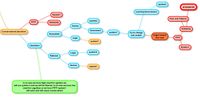Difference between revisions of "Conservatives and Liberals"
From Deliberative Democracy Institiute Wiki
(→Causes of Liberalism) |
|||
| Line 22: | Line 22: | ||
To delveop... | To delveop... | ||
| + | |||
| + | |||
| + | ==More== | ||
| + | |||
| + | [http://www.ted.com/talks/lang/he/tim_harford.html Good complex et TED] WOW! write how he presuase, how Archy works to presuase people, and The god complex in conservatives. and the greatnes in liberal trial and error, and the chalngs he put before schools and politicians. | ||
(Fear and need for certainty, fits brain research.... and show how it fits) | (Fear and need for certainty, fits brain research.... and show how it fits) | ||
Revision as of 08:55, 25 December 2012
Conservatism and Liberalism in the context of deliberation is states of mind that create different reaction to deliberation. When people in the state of mind of conservatism they usually will be less suspitable to adopt new ideas, they will be more planed-action driven and sometimes more aggressive or fearful[1]. Conservatism is driving people to group more closely[2]. On a state of liberalism, people will be more ready to exam new ideas, be less action driven, and more friendly and cooperative toward strangers. In liberalism state, people tend to be more individualistic or to get along according to occasionally sharing of interests.
See also: Conservatives and Liberals: literature review
Contents
description of liberalism and conservatism
high levels proposed causes of liberalism and conservatism
Causes of conservatism
Jost et al, did a very large survey on research about conservatism. They have found two main causes for conservatism. One is a reaction to a state of fear, and the other is a reaction to a need to do work in limited time[3]. The idea that threat is causing people to bevcome more conservatives was further corroborated by an experiment that showed that under fear conditions, liberal students judge like conservative students[4].
The causes in the light of brain research
Causes of Conservatism
Chronic state of conservatism is characterized by smaller anterior cingulate cortex (ACC) and enlarged amygdala[5]. The ACC is used to control efforts and also rostral ACC is active in learning intuitively social behaviors. if having small volume of the ACC, people will react more impulsively, and will have difficulty to understand social interactions. This will cause them to perceive unfamiliar people with less understanding and therefore with more mistrust.
Causes of Liberalism
To delveop...
More
Good complex et TED WOW! write how he presuase, how Archy works to presuase people, and The god complex in conservatives. and the greatnes in liberal trial and error, and the chalngs he put before schools and politicians.
(Fear and need for certainty, fits brain research.... and show how it fits)
References
- ↑ Oxley, D. R., Smith, K. B., Alford. John R., Hibbing, M. V., Miller, J. L., Scalora, M., Hatemi, P. K., et al. (2008). Political Attitudes Vary with Physiological Traits. Science, 321, 1667–1670.
- ↑ Lakoff, G. (1995). Metaphor, Morality, and Politics, Or, Why Conservatives Have Left Liberals In the Dust. Social Research, 62(2), 177–213.
- ↑ Jost, J., Glaser, J., Kruglanski, A., & Sulloway, F. J. (2003). Political Conservatism as Motivated Social Cognition. Psychological Bulletin, 129(3), 339–375.
- ↑ Nail, P. R., McGregor, I., Drinkwater, A. E., Steele, G. M., & Thompson, A. W. (2009). Threat causes liberals to think like conservatives. Journal of Experimental Social Psychology, 45(4), 901–907. doi:10.1016/j.jesp.2009.04.013
- ↑ Jost, J., & Amodio, D. (2012). Political ideology as motivated social cognition: Behavioral and neuroscientific evidence. Motiv Emot, 36, 55–64.
